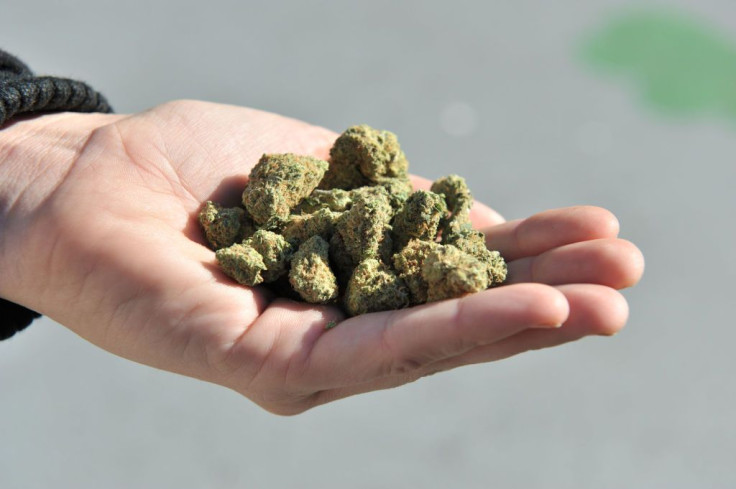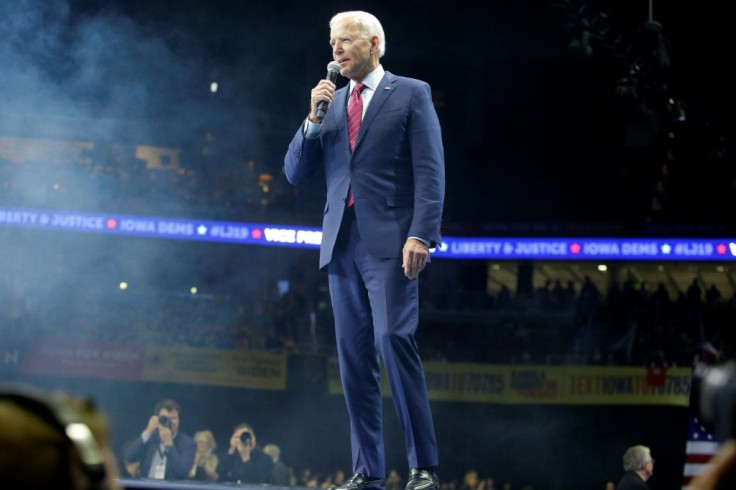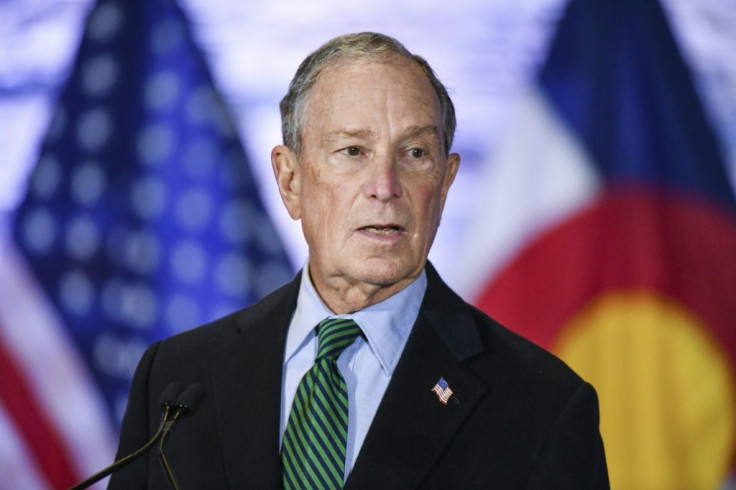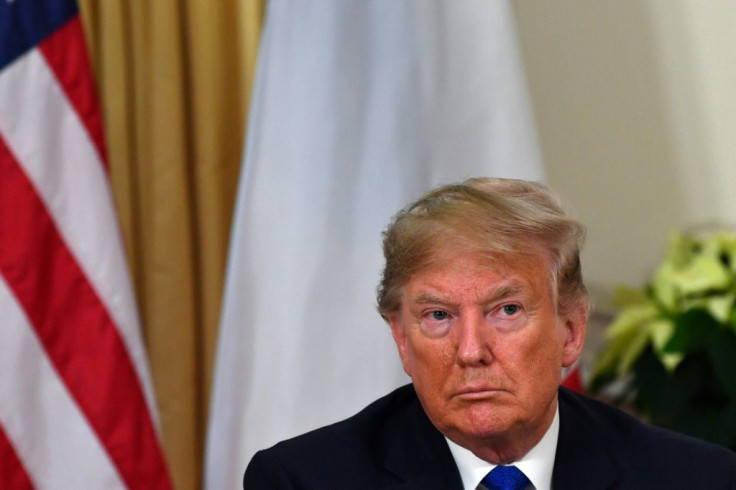The 3 Most Anti-Cannabis Presidential Candidates

In case you haven't noticed, marijuana is no longer a taboo topic. Having leaped from the shadows into the mainstream, there are now 33 states in the U.S. that have legalized marijuana in some capacity, 11 of which also allow adult-use consumption and/or the sale of recreational weed.
It's also a drug that most of the American public would like to see legalized. Gallup, which has been polling Americans about their views on cannabis for the past 50 years, found that support for national legalization hit an all-time high in 2018 and 2019 at 66%. What's more, the independent Quinnipiac University finds that more than nine out of 10 Americans support the ability of physicians to prescribe medical marijuana to patients.
At a time when historic votes are being conducted in Congress, it would appear that all momentum lies with those trying to reform existing marijuana laws. Yet three presidential candidates in the 2020 election, two of which are front-runners, may stand in the way of this progress.

Joe Biden
Among the large field of Democratic presidential candidates, most support some form of legalization of cannabis. But when it comes to front-runner Joe Biden, cannabis isn't something he's exactly thrilled to discuss.
Biden was one of many key figures that helped lead the War on Drugs, with Biden introducing a number of policy proposals between 1986 and 1990 that called for significantly harsher sentences for drug dealers. Included among "drug dealers" were those folks growing and distributing marijuana in the United States. Even as recently as 2010, the former vice president was quoted as saying that, "I still believe it's [marijuana] a gateway drug."
However, like a number of senior citizens in this country, Biden's stance on marijuana has softened over the years. Biden has gone on record as stating that he regrets the harshness of his prior stance on cannabis, and no longer views it as a gateway drug. He also believes that marijuana should be decriminalized, with previous offenses (presumably nonviolent) being expunged.
But one thing Biden has not suggested is that marijuana be legalized from an adult-use perspective. Although Biden's campaign spokesperson Andrew Bates told CNN earlier this year that the former vice president favors allowing states to continue making their own decisions, Biden himself has questioned the safety and body of evidence surrounding marijuana as recently as last month. Suffice it to say that Biden remains no friend of the cannabis reform movement.

Michael Bloomberg
Of all the presidential candidates still left in the race (on either side), none has a more outright negative view on marijuana than billionaire Democrat Michael Bloomberg.
Bloomberg, who was the mayor of New York City between 2002 and 2013, oversaw more than 400,000 cannabis-related arrests in the city over a 10-year span. These arrest figures were significantly higher than New York City mayors that preceded Bloomberg in office. Maybe what's more telling is that the former mayor voted numerous times against reform proposals that would have led to a court summons and fine rather than jail time for individuals caught possessing small amounts of cannabis, typically under 25 grams.
Bloomberg also thinks lawmakers are "stupid" for discussing the idea of marijuana reform. When speaking at the University of Toronto in January 2019, Bloomberg had this to say, by way of online publication Marijuana Moment:
"To go and encourage people -- to make it easier for people to engage in a behavior that has a significant possibility of damaging people's health -- is just nonsensical. This mad, passionate rush to let everybody do things without any research just isn't something we would do in any other way."
Bloomberg would later say that national efforts to legalize pot are "perhaps the stupidest thing we've ever done."
Put plainly, there's no more anti-cannabis candidate in the race than Michael Bloomberg.

Donald Trump
Republican incumbent Donald Trump is also no sure thing to support marijuana reform efforts.
During his campaign in 2016, then-candidate Trump voiced his "100 percent" support for medical marijuana, although he opined that additional research be conducted on adult-use weed. In all respects, Trump looked to be the first candidate to really give marijuana reform a boost, should he make it to the Oval Office.
However, this was quickly dashed when Trump nominated Jeff Sessions to become Attorney General. Even though Sessions is now gone, he might have been the most ardent opponent of marijuana on Capitol Hill. Sessions wound up rescinding the Cole Memo, and had asked for lawmakers to repeal riders prohibiting the Justice Department from using federal dollars to go after cannabis businesses in legalized states. At no point did President Trump stand up to Sessions' efforts to undo the progress made on the marijuana front.
President Trump also shelved Israel's plans to become an exporter of medical cannabis into the United States. Although this very well could have been a business decision, considering how particular the president is when it comes to trade deals, it's an odd move to make after announcing "100 percent' support for medical marijuana legalization during his campaign.
While Trump is likely the most amicable of these three presidential candidates toward pot, it's still quite possible he'd be against significant reforms of existing cannabis laws.
Expect the status quo to continue
Even though there's almost 11 months to go before we know who'll lead our country for the next four years, cannabis reform is unlikely to find much footing in the near-term, unless major changes are seen in the Senate in the Nov. 2020 election.
The primary issue is that Senate Majority Leader Mitch McConnell (R-Ky.) has blocked all attempts to bring cannabis legislation to the floor for vote, and Republicans, in general, have a more negative view on pot than Democrats or independents. This pretty much makes the recent historic votes for reform in the Democrat-controlled House a moot point. Plus, if any of these three presidential candidates are sitting in the Oval Office come 2021 or after, it's unclear if passed marijuana legislation in Congress would be signed into law.
For consumers and investors, I believe it's smart to approach marijuana in the U.S. as a status quo issue. Essentially, things are likely going to remain as they are now for the foreseeable future, with states in control of their own decisions, and marijuana businesses still facing plenty of challenges dealing with a Schedule I substance.
The fact that two of the three most anti-cannabis candidates are front-runners is a particular saddening blow to a company like Canopy Growth (NYSE:CGC), which is investing heavily in the U.S. market. Canopy Growth is spending $150 million on a hemp-processing plant in New York State that could easily be repurposed if cannabis were legalized. Canopy Growth has also made a $3.4 billion cash-and-stock contingent-rights offers for multistate operator Acreage Holdings, which has a pro forma presence in 20 states. Without a president to champion cannabis reform measures, it's the Canopy's of the investment world that'll remain on the outside of the largest marijuana market in the world looking in.
Sean Williams has no position in any of the stocks mentioned. The Motley Fool has no position in any of the stocks mentioned. The Motley Fool has a disclosure policy.
This article originally appeared in The Motley Fool.




















